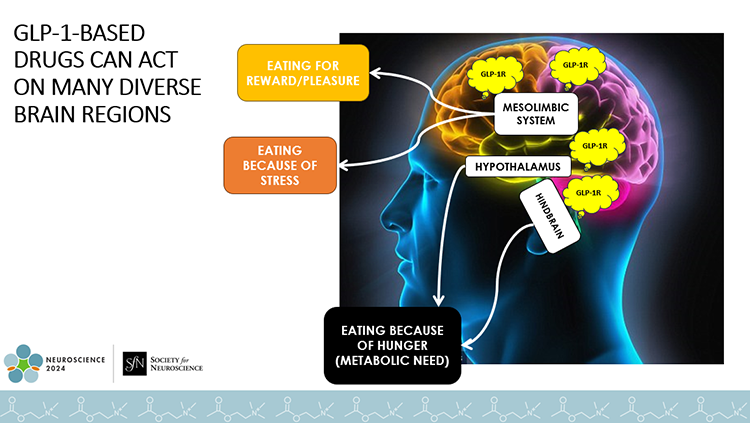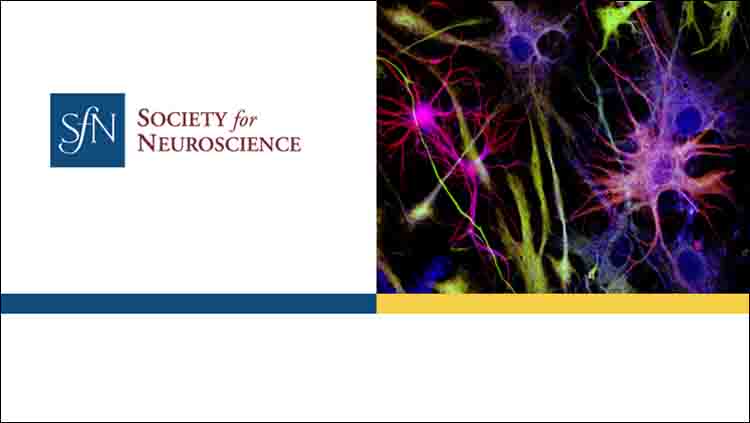Future of Neuroscience: Ya’el Courtney

“Future of Neuroscience” is a series of interviews with rising members of the field. A forward-looking complement to SfN’s “History of Neuroscience” autobiographies of distinguished researchers, interviewees reflect on their emerging careers and share thoughts on where they believe neuroscience is headed.
Ya’el Courtney is a PhD candidate in neuroscience at Harvard Medical School. She works with Maria Lehtinen to research the choroid plexus's role in maternal exposures affecting embryonic brain development. Her research excellence is highlighted by several publications and awards, including the NSF Graduate Research Fellowship, HHMI Gilliam Fellowship, and an SfN Trainee Professional Development Award (TPDA).
Raised in a challenging environment, Ya’el’s resilience took her from managing a Wendy's to earning dual degrees in cellular and molecular biology and psychology at Kent State University, graduating summa cum laude. Beyond research, Ya’el mentors and advocates for disadvantaged students in STEM. She engages in programs like Project SHORT and Científico Latino, fostering inclusivity in science. Her teaching dedication has been recognized with multiple awards from Harvard.
Ya’el believes no stage of an academic career should be miserable — happy scientists are the best scientists. She advocates for adequate sleep and enjoying life by working smart, not hard. After an immunology postdoc, she aims to lead a lab focused on mitigating post-infection brain effects, providing hope for those impacted.
Neuroscience Quarterly (NQ): How did you become interested in neuroscience and why did you decide to pursue it as a career?
Ya’el Courtney (YC): Before I earned my GED, I had not put intentional thought into how I wanted to spend my life. At the time, I was working full-time at Wendy's — first as a sandwich maker and later as a manager. I didn’t really know how people went about choosing their career paths, but I read a lot of books, so I started focusing on non-fiction to see what caught my interest. Mental illness was a looming presence throughout my childhood; I was drawn to abnormal psychology books to put some context to my experience. But it led me to a place of frustration. We understand so little about these disorders, and there aren't effective treatments. I knew from observing psychiatric or psychological disorders in myself and others how hard people work to get better and how hopeless they often felt.
I found hope in one book, The Brain that Changes Itself: Stories of Personal Triumph from the Frontiers of Brain Science by Norman Doidge, which detailed 12 case studies of patients who weren’t supposed to get better, but they just did. I delved deeply into the science of neuroplasticity and was inspired by this innate ability of the brain to adapt and heal itself. I had so many questions and just kept digging deeper.
I realized that that is what it is to be a scientist, and if I really felt passionate about answering these questions, I would have to get a PhD.
NQ: How have you been challenged while pursuing your career? How did you overcome these challenges?
YC: As the result of a difficult family situation, I found myself at 15 years old in the middle of court battles [to become legally independent from my parents] and bouncing between temporary guardianship and housing situations. A lot of the adults around me at the time had low expectations for me. As a financially independent kid, technically deemed an adult by the legal system, without a high school education, whenever I would tell people I was going to get a PhD in neuroscience, their response was, “No, you're not.” I once saw a therapist who looked at me and said, “I can’t help you.” A temporary guardian once sat me down and told me that if I didn’t enlist in the military, I’d most likely become addicted to drugs and unable to support myself.
After being constantly bombarded with pessimism, I started to react strongly when people told me something is not possible. I really don’t think anything is impossible. It might take 10 years, or it might take a million dollars, but there is always a way. I think when I started reading about the brain’s adaptability, I connected the dots and chose not to limit my own potential.
I really don’t think anything is impossible. It might take 10 years, or it might take a million dollars, but there is always a way.
I had practically no money, but I was able to get a full scholarship to Kent State University. During my undergraduate degree, I was diagnosed with concurrent mono and strep after months of sleeping less than four hours per night to keep up with work, school, and volunteering in a lab. I was ignoring my symptoms because I didn’t have health insurance and because I needed to keep up with my work to keep my scholarship. One day, I passed out on the floor of my apartment and woke up in my roommate's mom’s car on the way to urgent care.
In the ensuing months, my brain was not working. I was sitting in Organic Chemistry 2 and wasn’t understanding anything. I got perfect scores on my Organic Chemistry 1 exams and wasn’t doing anything differently. I found online forums of people noting similar cognitive impairments after a viral infection. I called my doctor about it, and he gave a vague, unsettling answer like, “Yes, that happens. Sometimes it goes away.”
This planted a seed in me. It was another moment when I just thought, “What do you mean we don't know?” Then the COVID-19 pandemic hit, and now a lot of people care about this. I’ve become integrated in these patient communities for people with long COVID, people with myalgic encephalomyelitis/chronic fatigue syndrome (ME/CFS), and I’m listening to the experiences they've had.
NQ: Where do you see your career going over the next few years? What do you hope to accomplish?
YC: My PhD work is in Maria Lehtinen’s lab studying the choroid plexus, epithelial tissue in the brain’s ventricles that produces cerebrospinal fluid. My research focuses on how proteins secreted by the choroid plexus affect embryonic development. My thesis work showed that if you activate the 5-HT2C serotonin receptor on these epithelial cells, they secrete in a way that hadn't been seen before. If a pregnant person is very sick for multiple days with a high fever, research shows that embryonic forebrain serotonin goes through the roof, which can lead to developmental disorders in the baby, so there may be a connection between the choroid plexus and viral infections that harm embryonic brain development.
This work has led to a lot of different avenues for research. Most recently, I’ve been studying the use of serotonergic hallucinogens in pregnancy using mouse models. Psychedelics have incredible potential to treat substance use disorders, so pregnant people have a lot to benefit from them. We have preliminary data that suggests in mice, these compounds cross the placenta, but over the next five to 10 years, Lehtinen’s lab will be investigating whether these substances are bad across the board during embryonic development. There may be windows of pregnancy when they would be safer — when the embryo is less vulnerable — or perhaps there's a way to modify these compounds so they don't cross the placenta.
Moving forward, I’m hoping to study the effects of viruses on the brain post-infection. I don't know why I recovered following my undergrad mono and strep infections compared to someone else who didn’t. My life goal is to figure that out and help the people who are on disability, who cannot work, who can't function, who are not living the life that they used to live because of these mysterious post-viral infection disorders.
NQ: How can the field of neuroscience empower and support people from underrepresented backgrounds?
YC: Pay them. People in my situation may not be comfortable sharing their financial situations. I was on food stamps, I didn't have health insurance, and my PI didn’t know I didn’t have a laptop for six months because I couldn’t afford to replace my broken one. Many people are turned away from academia because it's geared towards people who have enough financial support to not have to work during college. The field is losing excellent researchers because they are not getting enough money to live. It even starts with high school research exposure programs. Make sure if you're recruiting disadvantaged students, you're paying for things. You're not making their families shell out for everything because then you're selecting for people with wealthier families and you're losing many people you were originally trying to support.
Many people are turned away from academia because it's geared towards people who have enough financial support to not have to work during college.
A key part of my success came from funded summer research programs. I did the Blueprint Initiative Enhancing Neuroscience Diversity through Undergraduate Research Education Experiences (ENDURE), which is funded through NINDS. It provided housing, transportation to the program in St. Louis, about five meals per week, and a stipend.
Those summers were the easiest times of my life. I was able to just do research for 50 hours a week. It confirmed to me that I really do love research because I finally got to do it when I wasn't running on three hours of sleep and burning myself out. That’s when I knew unequivocally that this is what I wanted to do.






















